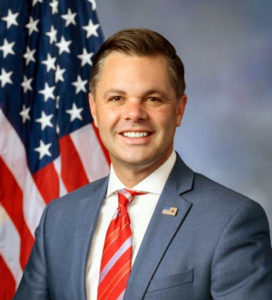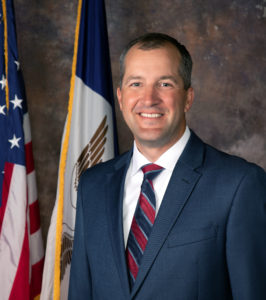 This week, 46 members of Congress and 15 Iowa fuel retailers added their voices to those urging the Biden administration to issue waivers to permit the sale of E15 for the 2024 summer driving season.
This week, 46 members of Congress and 15 Iowa fuel retailers added their voices to those urging the Biden administration to issue waivers to permit the sale of E15 for the 2024 summer driving season.
Representative Dusty Johnson (R-SD) and two dozen other members of the U.S. House sent a letter calling on President Biden to direct EPA to allow the sale of E15 fuel during the summer months (June 1-September 15, 2024). While the year-round sale of E15 will be permissible in some states beginning in 2025, it will still be prohibited this year beginning on June 1, unless EPA takes action.
On the Senate side, John Thune (R-SD) and Dick Durbin (D-IL) led an effort that included 18 other colleagues in a similar letter sent to the president.
“We thank these lawmakers, working across the aisle in both the House and Senate, for calling on the Biden administration to quickly take action to allow the nationwide sale of E15 through the coming summer,” said Renewable Fuels Association President and CEO Geoff Cooper. “These senators and representatives understand that, with current fuel supplies lower than the last two summer driving seasons and the market pressures of ongoing geopolitical conflicts, it is imperative that consumers have access to this American-made supply of lower-cost, cleaner fuel.”
Meanwhile, 15 Iowa retailers sent their own letter to President Biden asking for the summer waivers.
“Now more than ever, we want to keep selling E15, and our customers want to keep buying E15 to save money. While we support the solution for 2025 and beyond, we are encouraging the administration to use its waiver authority to permit the sale of E15 fuel for the 2024 summer driving season and extend the Reid Vapor Pressure (RVP) waiver from June 1 through September 15,” stated the letter.
The retailers who signed the letter were: Maverick/Kum & Go, Growmark FS, New Century FS, New Cooperative, Five Star Cooperative, Sundstop LLC, Zubs Shop, Cresco Fast Stop, Cubby’s, RocStop, RAM Inc., The Corner Store, Linn Coop Oil Co., Thomson’s Filling Station, and Farmers Mutual Town & Country.
Nearly 1,000 farmers and ethanol industry workers signed a letter last week to President Biden also urging immediate action on E15.











